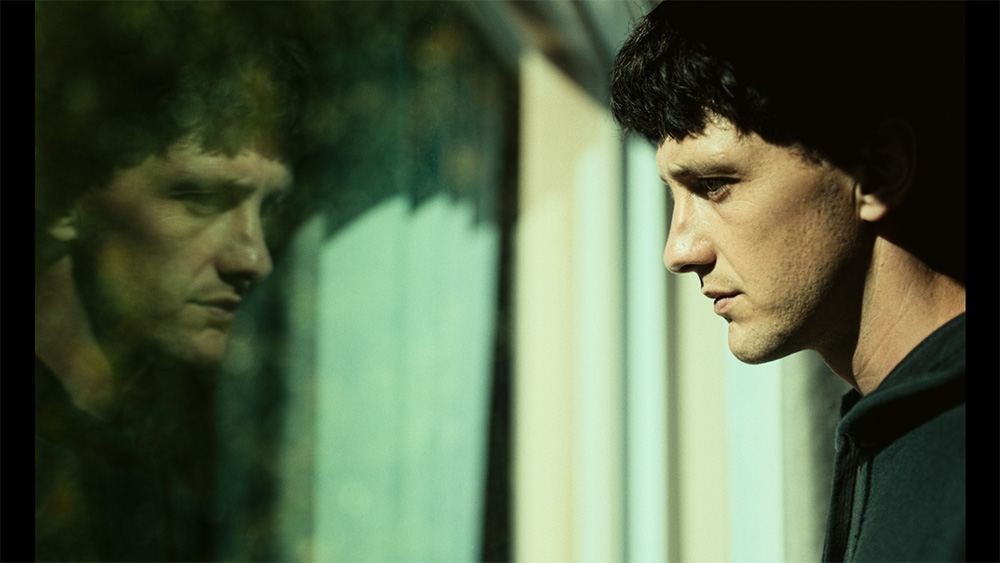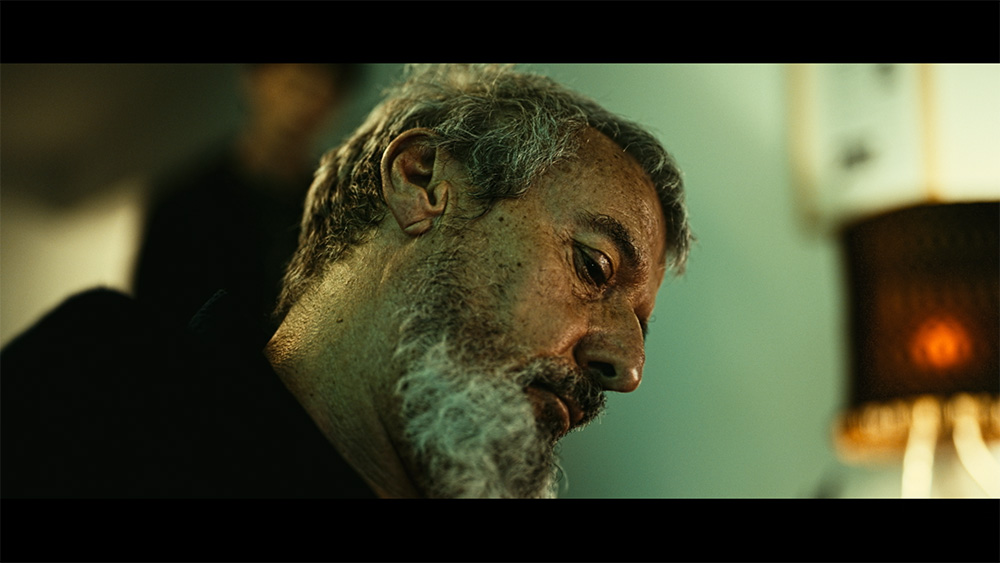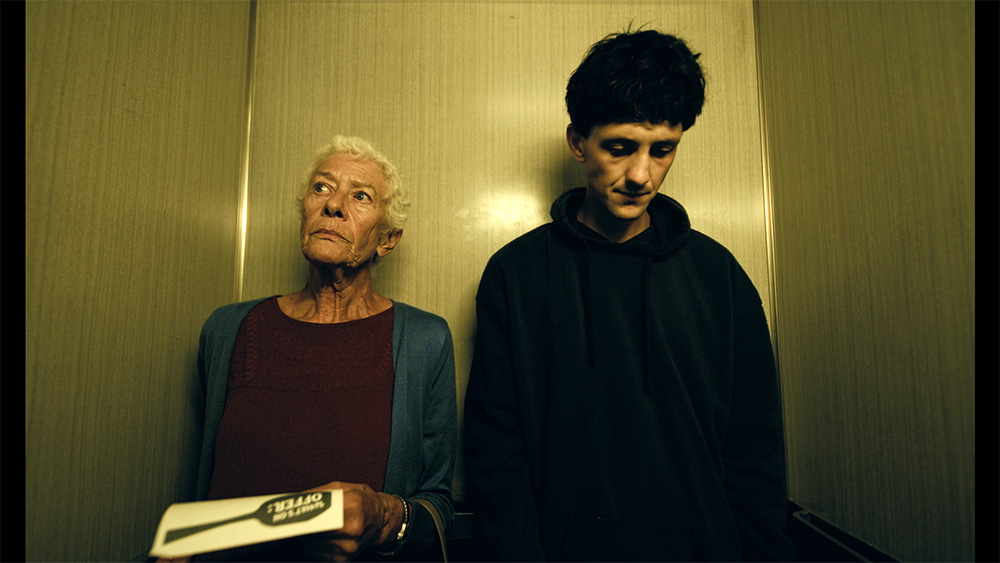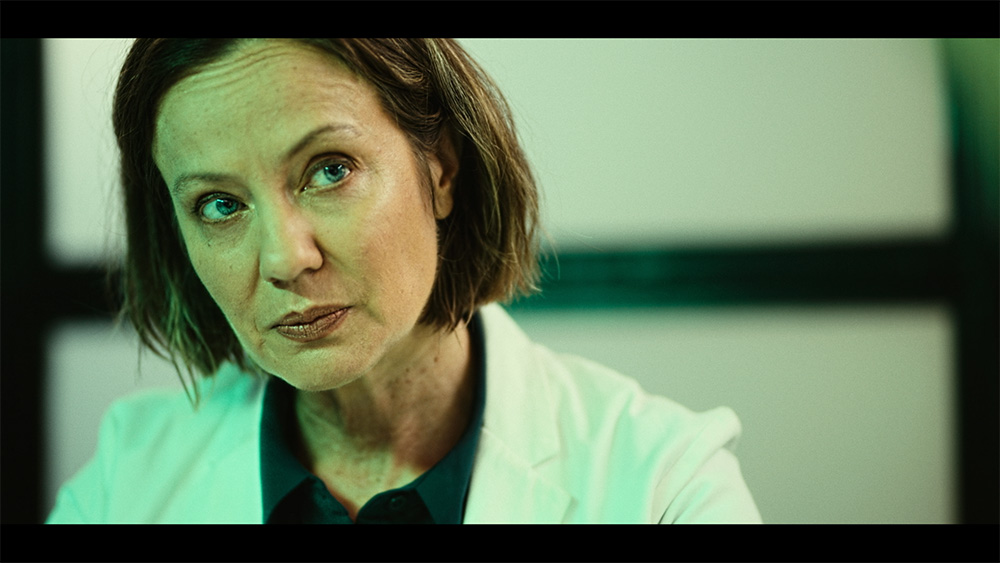



Short Film Project – Rising Filmmakers: Die skynwerper
The psychological thriller Die skynwerper has a sterling cast that includes veterans like Dawid Minnaar and Antoinette Kellermann, as well as the Donkerbos and Dinge van ’n kind actor Ben Albertyn in the lead role. The story, written by Linsen Loots and Dewet van Rooyen, with Van Rooyen as the director, focuses on Nelis (Albertyn) who lives in seclusion with his paralysed father, portrayed by Minnaar. When Nelis loses his job, he considers participating in a reality series Die skynwerper, but when his audition fails, he becomes suspicious of the series’ presenter, whom he believes is manipulating his life from the shadows …
Dewet van Rooyen elaborated on his thriller.
Please explain the origin and meaning of the title Die skynwerper. Was the title fixed from the start, or was it finalised later?
The film never had any other title; it was present on top of page one when the writing started. The word ‘skynwerper’ is obscure, but it has two meanings that are appropriate for the story. Literally, it means ‘spotlight’, and metaphorically it refers to the Holy Spirit in certain contexts. In the story, it represents both the figurative spotlight Nelis finds himself in, and his view of Maartin Minnaar as a saviour.
Without exception, when people hear about the film for the first time, they mispronounce the title as Die ‘skrynwerker’. In the film, Nelis also makes the error when he types it in on a search engine.
Where does the idea for the movie come from? Have you been working on it for some time?
The idea for the short film came up around 2015 when I jotted down two sentences in a notebook: A nerd suspects he is participating in a Derren Brown episode. I won’t share the second sentence, because it gives away the plot, but the story took shape after I had developed a slight obsession with the British TV personality and mentalist Derren Brown.
Brown’s work on psychological manipulation and indoctrination that cause ordinary people to do things they would never have considered otherwise, fascinated me. In one series he created the impression among participants that their audition for his show was unsuccessful, just to put them right in the middle of a horrific scenario later. Without them being aware of anything, of course.
In Die skynwerper Nelis suspects, after his unsuccessful audition, that he is being filmed secretly and that there are certain expectations of him.
The cast includes giants in the South African film industry. What was it like to work with veterans such as Antoinette Kellermann and Dawid Minnaar?
Of course, it is a privilege to work with such South African theatre and film icons. That moment these actors perform the dialogue you have written months ago in a coffee shop in Hout Bay, always remains a highlight for me during the filmmaking process.
There were times I had to restrain myself from being swept away by their acting – otherwise I would lose my focus and make mistakes, but the experience reminded me of how fortunate I was to convince such experienced artists to be part of the project.
Ben Albertyn is brilliant in the role of Nelis. Tell us more about the auditioning process.
I was convinced from the start that Ben would be the perfect fit for Nelis, but I am also aware of the danger of becoming too subjective once you are fixated on certain aspects of the process, and that, when picking the actor who must assume the responsibility of a leading role, it requires proper consideration.
Three actors auditioned for the part, and although they impressed us tremendously, it was Ben who concluded the search. Ben succeeds in positioning Nelis somewhere between protagonist and antagonist. His ability to tune into the character is mind-blowing.
Nude scenes are still sparse in Afrikaans films, especially male nudity. The bath scene is poignant, and the father’s vulnerability is obvious. What made you decide to include it in the film, and how did you approach the scene with the actors?
The bath scene was pivotal in providing balance in the dynamics between Nelis and his dad.
Initially, the father is portrayed as an embittered bully who has an emotional grip on Nelis. But by portraying him as vulnerable, invites the viewer to see him in a different light, just for a moment, and to perhaps consider having sympathy for him.
It was my first experience directing a nude scene, so, naturally, I was careful and not entirely sure how to approach it. The bathroom in which we worked was so small, it was almost hilarious. The space was barely enough for two actors, the sound technician and me. And for the greater part of the two and a half hours we spent filming the scene, we were intimately present in one another’s personal space. It was stuffy, cramped and an ergonomic marathon, but it was never uncomfortable because of the nudity.
Violence is one of the main themes in Die skynwerper. Can you elaborate on the function of the horror scenes?
It was necessary to portray the mental unravelling of Nelis convincingly as he grew from coward to hero in the story. The violence, and also the nudity, are functional and not there to create sensation. I can’t really say more without giving away spoilers.
What stands out as a big challenge you had to face during filming?
I was always aware that the script was ambitious in terms if the number of different locations we had to use. So, the biggest challenge was time management. Therefore, little time to sleep or sit around, but the combination of a technical team who collaborate seamlessly and an ensemble of experienced actors, ensured that only a few cuts ended up on the editing room floor.
How important is the Silwerskerm Festival for you as a South African filmmaker?
The Silwerskerm Festival provides funding and support that allows me to tell a story that would otherwise have been forgotten. It offers me the opportunity to work in absolute amazement with outstanding actors and technicians. While learning new skills. It gives me access to an audience – for better or for worse. The festival is the biggest local gathering of creativity and expertise in our industry, and they included me. So, it is very important to me.
